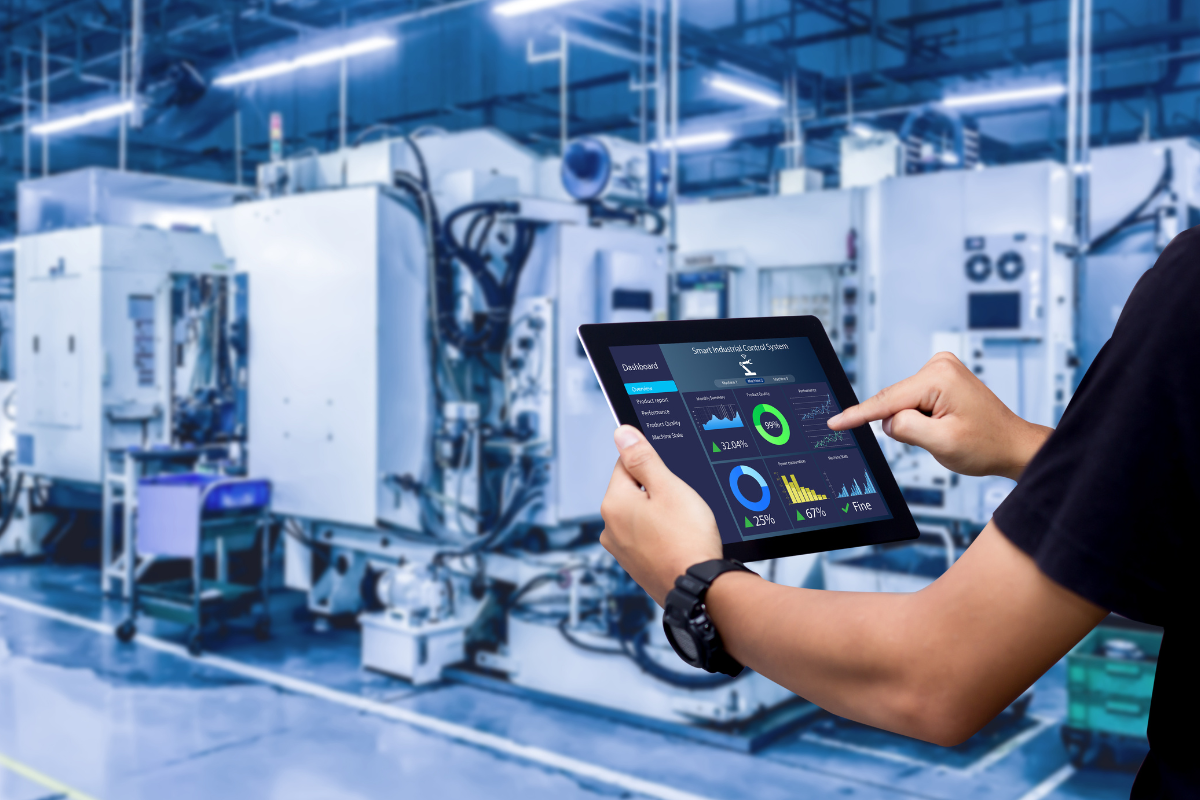Batch Manufacturing Records (BMR) are essential documents in the manufacturing process that detail the production of each batch of a product. These records include crucial information such as the ingredients used, production procedures, equipment settings, and quality control measures. The accuracy and completeness of BMRs are vital for several reasons:
(1) Regulatory Compliance: BMRs are often required by regulatory bodies such as the FDA in the pharmaceutical sector or the FSSAI in food and beverages. They provide a comprehensive record of production activities, ensuring that companies adhere to strict guidelines and standards. Non-compliance can lead to costly fines and damage to a company’s reputation.
(2) Quality Assurance: BMRs serve as a foundation for quality assurance. They help track product consistency, identify potential issues in the manufacturing process, and facilitate investigations in the event of product recalls. In fact, according to a study, companies with well-maintained BMRs reduce product recall incidents by up to 30%.
(3) Operational Efficiency: Accurate BMRs contribute to streamlined operations by minimizing errors and enhancing communication among team members. As per the survey, it indicates that organizations with digitalized BMR processes can increase their production efficiency by 25%.
Recognize Batch Manufacturing Records Process Improvements Using eBMR

The manufacturing landscape is rapidly evolving, and batch manufacturing records (BMR) are at the forefront of this transformation. Electronic Batch Manufacturing Records represent a powerful solution for enhancing the efficiency and accuracy of BMR processes. Here, we explore how eBMR can drive significant process improvements in manufacturing.
(1) Enhanced Data Accuracy and Reliability
One of the most pressing challenges with traditional paper-based BMRs is the risk of human error. Manual data entry can lead to inaccuracies that compromise product quality and regulatory compliance. By implementing eBMR, manufacturers can automate data capture, reducing the likelihood of errors.
A recent study showed that organizations that adopted eBMR experienced a 40% decrease in data entry errors. This improvement directly contributes to higher product quality and greater trust in manufacturing processes.
(2) Streamlined Compliance Management
Compliance with regulatory standards is non-negotiable in manufacturing. eBMR systems help streamline compliance management by providing automated documentation and real-time alerts for any deviations from established protocols.
According to a study, companies using eBMR reported a 50% reduction in time spent on compliance audits. This efficiency not only saves time but also minimizes the risk of penalties and recalls associated with compliance failures.
(3) Improved Operational Efficiency
eBMR systems significantly enhance operational efficiency by reducing the time spent on manual tasks such as data retrieval and record updates. With real-time access to production data, teams can make quicker, more informed decisions.
Research indicates that companies implementing eBMR have achieved a 30% increase in overall production speed. This acceleration allows manufacturers to respond more effectively to market demands and reduce time-to-market for new products.
(4) Data-Driven Insights for Continuous Improvement
eBMR facilitates robust data analysis, enabling manufacturers to gain insights into batch performance and identify areas for improvement. By leveraging analytics, organizations can make data-driven decisions that enhance their manufacturing processes.
A survey revealed that 70% of companies using eBMR reported improved visibility into their production processes, leading to enhanced decision-making and continuous improvement initiatives.
(5) Cost Savings and ROI
The transition to eBMR is not just about operational improvements; it also has a significant impact on the bottom line. By reducing errors, streamlining compliance, and improving efficiency, eBMR can lead to substantial cost savings.
As per research, companies that adopted eBMR have seen a 20% reduction in overall operational costs, highlighting the strong return on investment associated with digital transformation in batch manufacturing.
Let’s Explore About Electronic Batch Manufacturing Records System
eBMR systems digitize and streamline the documentation of batch production processes, ensuring accuracy, compliance, and traceability. By replacing traditional paper records, these systems enhance data integrity, reduce errors, and improve efficiency. They are particularly beneficial in highly regulated industries like pharmaceuticals and food production, where maintaining precise records is crucial for quality control and regulatory compliance. Embracing eBMR can lead to significant operational improvements and cost savings, making it a vital component of Industry 4.0.

1. Understanding Batch Manufacturing Records (BMR)
Batch Manufacturing Records (BMR) are critical documents that capture the complete history of a batch’s production, including ingredients, processes, equipment settings, and quality control measures. These records play a vital role in ensuring that products are manufactured consistently and meet quality standards. BMRs not only provide accountability and traceability but also help companies comply with industry regulations.
Despite the importance of BMRs, many manufacturers still rely on outdated, paper-based systems. According to a study, 60% of manufacturers rely on paper documentation for their batch records. This dependence on paper can lead to inefficiencies and risks that could risk production quality.
2. Challenges in Traditional BMR Processes
Traditional BMR processes are fraught with challenges that can hinder manufacturing efficiency and compliance:
- Errors: Manual data entry increases the likelihood of mistakes, which can lead to costly product recalls and regulatory penalties.
- Inefficiencies: The reliance on paper documentation slows down workflows, making it difficult to retrieve and analyze data promptly.
- Compliance Risks: Maintaining compliance with regulations becomes more challenging when records are incomplete or poorly managed.
- Time Delays: Searching for and correcting errors in paper records can significantly delay production timelines.
3. Benefits of Implementing eBMR

Switching to electronic Batch Manufacturing Records (eBMR) offers numerous advantages that can transform manufacturing processes:
Improved Accuracy and Compliance
- eBMR systems automate data capture, significantly reducing human error.
- They provide real-time compliance checks and alerts to ensure adherence to regulatory standards.
- eBMR can reduce compliance-related discrepancies.
Enhanced Efficiency
- eBMR streamlines workflows, reducing the manual tasks associated with paper documentation.
- Companies using eBMR have reported production speed has increased that showcasing the efficiency gains possible through digital transformation.
Data-Driven Insights
- eBMR enables manufacturers to analyze batch performance data effectively, driving continuous improvement in processes.
- Data is the new oil, and with eBMR, we’re refining it for actionable insights. This focus on data analytics empowers companies to make informed decisions that enhance product quality and operational efficiency.
Summary:
In conclusion, implementing an Electronic Batch Manufacturing Records (eBMR) system can significantly enhance the batch manufacturing record process. By digitizing records, eBMR systems improve data accuracy, ensure compliance, and streamline operations. This leads to reduced errors, better traceability, and increased efficiency. Ultimately, adopting eBMR systems not only supports regulatory adherence but also drives operational excellence and cost savings, making it a strategic investment for any manufacturing organization.
FAQs:
What are the key metrics to track for continuous improvement in batch manufacturing records?
Key metrics to track for continuous improvement in batch manufacturing records include Overall Equipment Efficiency (OEE), which measures the effectiveness of manufacturing operations by combining availability, performance, and quality. Cycle time, which tracks the duration from the start to the completion of a batch, is also crucial. Yield, which measures the proportion of good products produced versus the total output, helps in assessing production efficiency. Monitoring defect rates is essential for identifying areas needing quality improvements. Additionally, customer satisfaction scores provide insights into the end-user’s perception of product quality and can highlight areas for further enhancement.
What technologies can be implemented to streamline the batch record process?
To streamline the batch record process, several technologies can be implemented. Electronic Batch Records (EBR) systems digitize and automate the recording and tracking of batch-related information, significantly reducing errors and improving efficiency. Electronic Batch Manufacturing Records (eBMR) systems integrate various business processes, including batch record management, ensuring seamless data flow and compliance.
What are the best practices for ensuring compliance in batch manufacturing records?
Ensuring compliance in batch manufacturing records involves several best practices. Adhering to Good Manufacturing Practices (GMP) is fundamental, as it ensures that products are consistently produced and controlled according to quality standards. Regular training for employees on compliance requirements and documentation procedures is crucial for maintaining high standards. Comprehensive documentation of every step in the manufacturing process, including deviations and corrective actions, is essential for transparency and accountability. Utilizing electronic systems, such as eBMR, enhances data integrity and ensures adherence to regulatory standards, making compliance more manageable and efficient.
How can real-time data monitoring benefit the batch record process?
Real-time data monitoring offers several benefits to the batch record process. It enables early detection of potential issues, allowing for prompt corrective actions before problems escalate. Monitoring performance metrics in real-time helps identify and address bottlenecks and inefficiencies, optimizing overall performance. Real-time data monitoring also improves data integrity by ensuring that information is processed accurately and consistently. Additionally, it facilitates faster decision-making by providing up-to-the-minute insights, enabling quicker and more informed responses to changing conditions in the manufacturing process.














